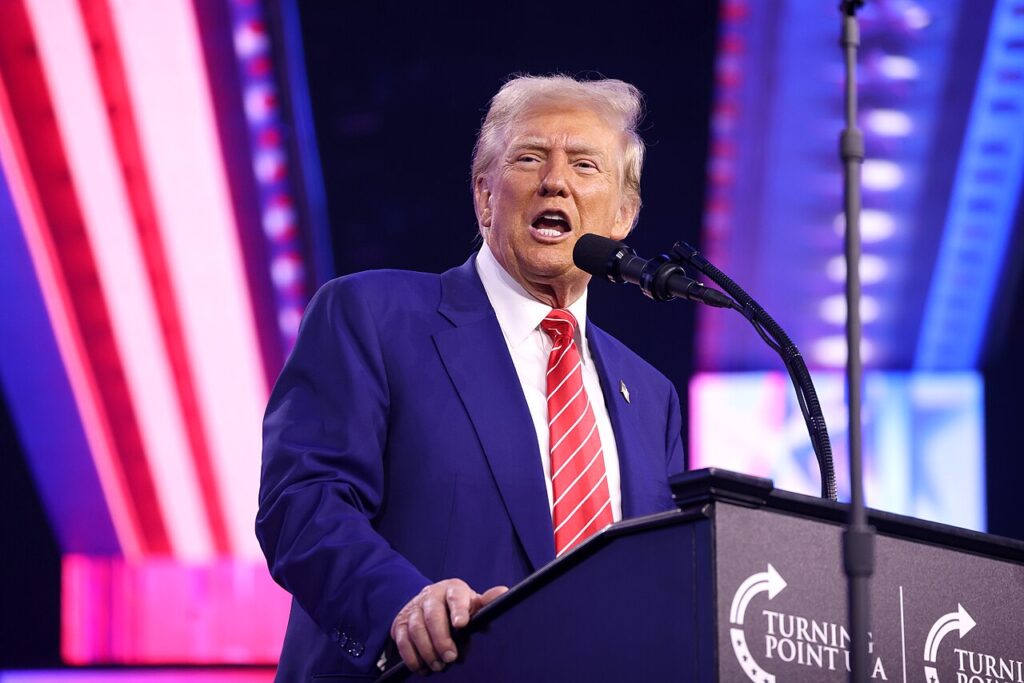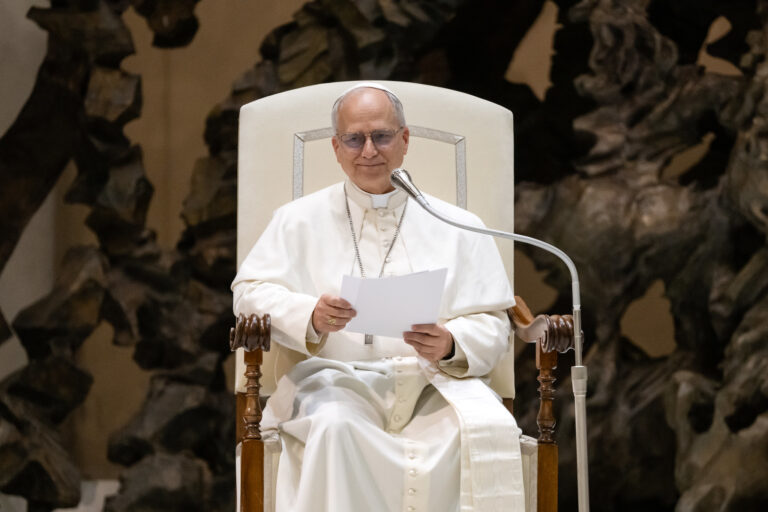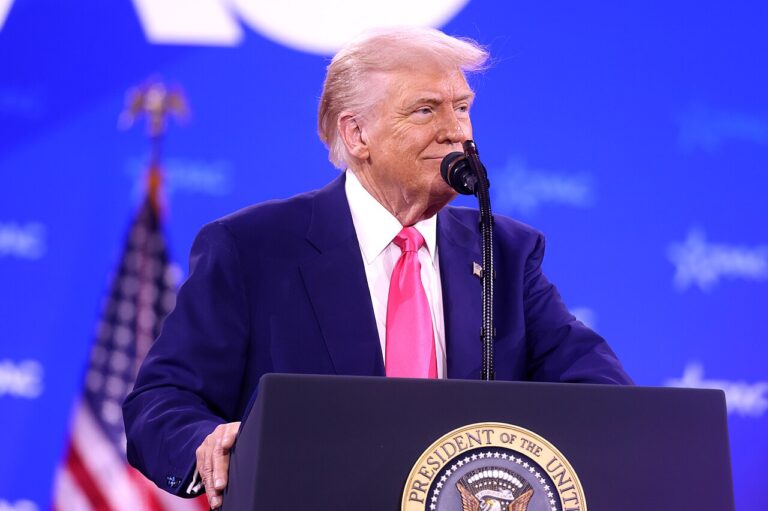Donald Trump is, everyone admits, no typical politician. And it’s not just the Trump dance or his “Fight, fight, fight” courage under fire. What really strikes fear into the hearts of elite politicians, who bend to trends and say only what their audience wants to hear, is this: Donald Trump says the same thing in public that he says in private.
There are no backroom deals, and the issue of abortion is no exception. While Trump is not perfect on the life issues, he is generally supportive of our cause.
Many of those who will serve in his administration, from Vice President J.D. Vance to Secretary of State Marco Rubio, are even stronger on the pro-life issue. Pro-abortion groups in the U.S. and abroad are increasingly dismayed by the line-up of Trump’s cabinet, while pro-lifers like me are increasingly excited.
A new chapter for the pro-life movement both in the U.S. and globally is about to be written. And leaders throughout Latin America can’t wait to be a part of it.
In Colombia, Mr. Jesús Magaña, President of United for Life, expressed excitement that has gripped the entire continent:
“Trump’s victory is good not only for the U.S. but for the entire world. In Latin America, we hope for assertive action against destructive leftist regimes, especially Maduro in Venezuela, Ortega in Nicaragua, Sheinbaum in Mexico, and Petro in Colombia. Likewise, [we hope for] a real and direct offensive against all drug trafficking and human trafficking mafias in the region.
“On the pro-life front, we hope the Mexico City Policy will be reinstated, which will stop the funding for the imposition of abortion in Latin America. We want the various gender ideology programs strongly promoted by the Biden administration to stop. We also expect the U.S. to rejoin to the Geneva Consensus Declaration in favor of maternal health and against abortion.”
In El Salvador, Julia Regina de Cardenal, President of the Foundation Yes to Life, described Trump’s triumph this way:
“Democracy, common sense, freedom of expression, family, the rule of law, Christianity, true women’s rights, masculinity, and patriotism have won. The U.S. has awoken and rejected globalism, wokeism, gender ideology, cancel culture, the hyper-sexualization and mutilation of children, the business of trafficking migrant children, and the persecution of Christians, parents, and political opponents.”
“Americans massively rejected these disastrous Democrat policies in elections too decisive to be stolen, avoiding what happened in 2020.”
The enthusiasm in Argentina, where Trump ally Javier Milei was recently elected, was over the top. Argentine legislator Nicolás Mayoraz expressed the enthusiasm of Javier Milei’s administration with Trump’s return to the White House:
“Donald Trump’s victory is not only a sign of hope for ending the armed conflicts in Europe and the Middle East but also a great opportunity to confront the pernicious strategies of globalist elites trying to reshape our nations’ identities and replace them with their social engineering programs, creating alienated individuals and submissive peoples. Trump’s victory gives crucial momentum to the fight led by President Milei in this area, with the clear goal of reversing the bleak future imposed on us and initiating one of greater freedom and prosperity.”
Trump’s victory has already knocked Mexico’s new socialist government off balance. Guillermo Velasco Barrer, President of the “Movement for the Common Good,” explains why President Claudia Sheinbaum ought to be worried:
Donald Trump’s return to the White House will have many implications for Mexico, both in economic and political spheres, but not only those. The Republican’s victory will also have a significant impact on the fight for life in our country. This is not only because there will be more decisive actions against drug cartels, but also because the pro-abortion push in Mexico will be notably curtailed.
First, the flow of economic resources from the United States to various initiatives and projects aimed at promoting abortion in Mexico will be cut off. This includes support for legislative initiatives intended to expand abortion access, as well as funding for media and social media campaigns designed to create a climate of opinion favorable to abortion.
Similarly, the United States will oppose initiatives within the framework of trade and cultural relations between the two countries that openly or subtly promote the pro-abortion agenda in forums, business projects, and “academic” and “cultural” spaces that seek to pave the way for the abortion industry.
It is not unlikely that Trump will “tighten the screws” not only on immigration issues but also on public policies in Mexico aimed at broadening abortion access. President Sheinbaum may have to limit her feminist-pro-abortion agenda to avoid opening another front of conflict with the United States.
Lastly, Trump’s pro-life narrative could have a positive impact on the morale of various leaders and organizations in Mexico that work to defend life, as they may feel supported in their mission. It is impossible for the pro-life culture that the new U.S. administration will promote not to have an effect on Mexico, its main trading partner.
Pro-Abortion Groups React
While Trump is not the perfect pro-life figure, all indications suggest that his administration will continue to support our cause. In 2017, he expanded President Reagan’s Mexico City Policy and he will no doubt reinstate it next month. In fact, he is already the president with the most significant pro-life achievements in recent U.S. history, and he remains the most hated enemy of the abortion industry. Without a doubt, he could be more decisive and clearer, but that will largely depend on the decisions pro-life leaders make from now on.
Pro-Abortion Groups Are Worried
Donald Trump’s victory quickly set off alarm bells among groups defending the pro-abortion agenda. The International Planned Parenthood Federation for the Americas and the Caribbean Region released a clear and somber statement, calling the victory a “catastrophe to be faced.” They declared: “In this critical moment, we call on all governments, donors, and international agencies to step up in the face of the upcoming assaults on human rights that will come with the Trump administration, because activists, communities, and civil society organizations are on the frontlines but should not fight these battles alone.” They emphasized, “We will not be deterred.”
The dismay and bitterness were also evident at IPPF offices in Ibero-America.
Profamilia, its affiliate in Colombia, hastened to declare its commitment to defending reproductive rights, affirming:
“We will not be intimidated. Our commitment to the millions of people we help and support remains strong.” This position reflects the despair at what they foresee as a significant setback in promoting abortion in the region.
Amnesty International, for its part, adopted a combative tone on the social network X, promising not to cede ground to Trump’s pro-life policies: “Amnesty International has documented extensively the damage to human rights caused by President-elect Trump’s first administration, including its efforts to redefine human rights, and stands ready to defend human rights in his second Presidential term. Amnesty International is no stranger to adversity. For more than six decades, we’ve never backed down, and we are not backing down now.”
Bottom line? Pro-abortion groups are frantic. They see the power and funding structures they have consolidated over recent decades under threat. Pro-life movement, however, are hopeful: for them, this moment marks a new phase of the struggle for life, boosted by a strong ally in the White House.







